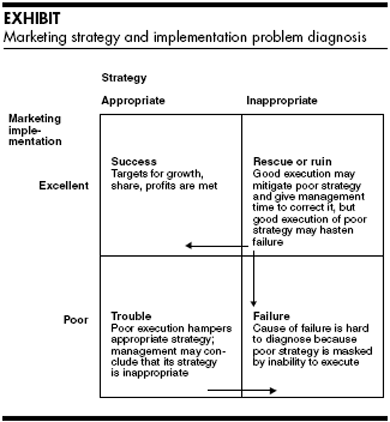
(CNN)Rewind the clock to February 23, the day before Russia launched its all-out invasion of Ukraine, and one might be tempted to guess that Ukrainian President Volodymyr Zelensky’s days in office were numbered.
After all, Russia’s military outspent that of Ukraine by roughly ten to one. Moscow enjoyed a twofold advantage over Kyiv in land forces; and the nuclear-armed power had ten times the aircraft and five times the armored fighting vehicles of its neighbor.
A visibly angry Russian President Vladimir Putin had appeared on television just days before, delivering a rambling historical monologue that made clear he expected nothing less than regime change in Kyiv.
‘Madness’: Putin addresses Ukraine during speech 01:57.
The Kremlin leader seemed to be gambling that Zelensky would flee his capital, much as the US-backed president of Afghanistan had left Kabul just a few months earlier, and that Western outrage would subside, albeit with the temporary pain of new sanctions.
100 days later, whatever plans Putin may have had for a victory parade in Kyiv are on indefinite hold. Ukrainian morale did not collapse. Ukrainian troops, equipped with modern anti-tank weaponry delivered by the US and its allies, devastated Russian armored columns; Ukrainian missiles sank the guided-missile cruiser Moskva, the pride of Russia’s Black Sea Fleet; and Ukrainian aircraft stayed in the air, against the odds.
President Volodymyr Zelensky in Kharkiv region on May 29.
President Volodymyr Zelensky in Kharkiv region on May 29.
In late March, Russia’s military began withdrawing its battered troops from around the Ukrainian capital, claiming they had shifted focus to capturing country’s eastern Donbas region. Three months after its invasion, Russia no longer appears to be aiming for a short, victorious war in Ukraine — nor does it seem to be capable of achieving one.
The problem with prognostication
Does this mean Russia is losing? It’s tempting to take a snapshot of the situation on a given day and draw sweeping conclusions.
The Ukrainians have managed to kill Russian generals at an astonishing pace; Moscow has been forced to reorganize its military command after initial disarray; and Russian casualties, however elusive the official numbers, are shockingly high.
But Russia now controls a crescent of Ukrainian territory that extends from around Ukraine’s second city of Kharkiv, continues through separatist-held cities of Donetsk and Luhansk and reaches westward to Kherson, forming a land bridge linking the peninsula of Crimea (forcibly annexed by Russia in 2014) with the Donbas region.
Russia’s main direction of effort is now in the Donbas region, where things have settled into a grinding war of attrition. Recent fighting has focused around Severodonetsk, an industrial city where Ukrainian forces hold the last sliver of eastern Luhansk region.
Smoke and dirt pictured over Severodonetsk on June 2, 2022.
Smoke and dirt pictured over Severodonetsk on June 2, 2022.
Ukrainian troops have ceded most of Severodonetsk to the Russians. The fall of the city will be a symbolic loss, but one that military analysts say spares the Ukrainian forces there from a protracted — and likely losing — siege.
“Kyiv could have committed more reserves and resources to the defense of Severodonetsk, and its failure to do so has drawn criticism,” the US-based Institute for the Study of War said in a recent analysis.
“Both the decision to avoid committing more resources to saving Severodonetsk and the decision to withdraw from it were strategically sound, however painful. Ukraine must husband its more limited resources and focus on regaining critical terrain rather than on defending ground whose control will not determine the outcome of the war or the conditions for the renewal of war.”
Amid the offensive on Severodonetsk, Oleksandr Motuzianyk, the Ukrainian defense ministry’s spokesperson, said Russian forces were now “trying encircle our troops in Donetsk and Luhansk regions,” and regrouping to launch an offensive in the directions of Sloviansk, a strategic city that may be shaping up as the focus of the next pivotal battle.
A destroyed Russian tank in the Kyiv region on April 16.
A destroyed Russian tank in the Kyiv region on April 16.
The battles in Ukraine’s east are being fought in much more open terrain than the more densely-packed urban environment around Kyiv. That explains the urgency with which Ukrainians have requested heavier weaponry — particularly artillery systems that can strike targets at longer ranges — from the US and its allies.
President Joe Biden announced Wednesday that the US will be sending more advanced rocket systems, including the High Mobility Artillery Rocket Systems with munitions that can launch rockets around 49 miles, a range far greater than anything Ukraine has been sent to date.
That’s welcome news for Kyiv, but Russia’s offensive in the east is playing out as international media attention on Ukraine recedes somewhat from the headlines. And that may be what Putin is counting on, perhaps mindful that high energy costs and rising consumer prices — both of which have been exacerbated by the war in Ukraine — are more likely to concentrate public opinion (and drive election outcomes) in the United States and elsewhere.
Putin may also be counting on short diplomatic attention spans. This is the same Russian leader who doubled down on his support for Syrian President Bashar al-Assad in 2015 after Damascus suffered a string of defeats. That war — now entering its 12th year — has continued even as the world’s attention has shifted to Ukraine.
Officials carry away bodies of dead Russian soldiers in Kyiv on May 13.
Officials carry away bodies of dead Russian soldiers in Kyiv on May 13.
In that respect, Zelensky has been one of Ukraine’s biggest assets in the information war. He has made a string of virtual appearances before parliaments around the globe, while reminding other world leaders who might be inclined to placate Putin by pushing for Ukraine to cede territory that it is the Ukrainian people, not he, who must decide outcomes.
In Zelensky’s appearances with wounded Ukrainian soldiers and civilians, the Ukrainian leader takes selfies and projects a warm, humane and self-effacing leadership style. That contrasts with the Russian leader’s lone public visit to a military hospital: Putin, in an oversized white laboratory coat, met with wounded soldiers and officers who stood stiffly at attention before their commander-in-chief.
But Putin, who has ended all domestic political opposition and effectively controls his country’s airwaves, does not face the same domestic pressure as Zelensky. Nikolai Patrushev, the head of Putin’s Security Council, said in recent remarks that Russian forces aren’t “chasing deadlines” in Ukraine, suggesting Putin has a much more open-ended timeline for his war in Ukraine. Ukrainians, in contrast, fear international fatigue may set in, leading the international community to press their government to make concessions to Putin.
“You have the watches, but we have the time.” That saying, sometimes attributed to a captured Taliban fighter, summed up America’s dilemma in fighting the Afghanistan war, a grudging acknowledgement that insurgencies operated on a different political horizons and timelines, and that insurgents needed only outlast — not defeat — the technologically superior US military.
To repurpose that phrase, the deciding factor in Ukraine may be who has the time: A Russian dictator who is likely to hold power until he dies, or a Ukrainian people who are fighting for their national survival.



Very good info. Lucky me I ran across your blog by chance (stumbleupon).
I have book-marked it for later!
It’s very interesting! If you need help, look here: ARA Agency